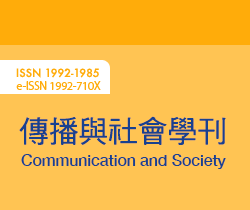 |
| July 2018 |
 |
45 |
|
| 研究論文Research Articles |
| 命名的政治:從大陸配偶新聞反思民族主義的媒體建構 |
| The Politics of Naming: Some Reflections on the Construction of Chinese Marriage Immigrants and Nationalism in Taiwan’s Media |
|
|
|
 |
 (7120)
(7120)
|
| 作者 |
朱蘊兒 |
| Author |
Yun-Er ZHU |
| 關鍵詞 |
大陸配偶、基於語料庫的質性內容分析法、民族主義、新聞框架 |
| Keywords |
Chinese marriage immigrants, corpus-based qualitative content analysis, nationalism, frame analysis |
| 摘要 |
大陸配偶台灣媳婦,她們站在台灣與中國大陸的交界處,是想像共同體的最薄弱也最敏感的邊界,也是探究台灣民族共同體之構成的絕佳著力點。
在新聞中,大陸配偶有著四種不同的名字:大陸配偶、中國配偶、大陸新娘、中國新娘,各自代表著不同的劃界方式與社會秩序。本文以2003到2014年間台灣四大報為研究對象,以基於語料庫的質性內容分析法為方法,比較四種命名方式之異同。
研究發現:「大陸/中國新娘」與「大陸配偶」的命名系統有顯著差異。「大陸/中國新娘」在「違法犯罪」框架的支配下,被污名化為「壞新娘」。而「大陸配偶」則受到官方色彩濃厚的「社會融合與社會福利」框架影响,被塑造為「模範陸配」。「好配偶」與「壞新娘」,是民族主義的兩張面孔,看似截然不同的典型敘事卻疊加出了一套恩威並施的論述系統,規訓大陸配偶以犧牲自我、順從父權、效忠台灣,來實現進入民族共同體的願望。而「中國配偶」較為特殊,其論述權完全為《自由時報》所佔有,被放置在了台灣民族主義的大框架下,很少將陸配想象為共同體的成員。
|
| Abstract |
Chinese marriage immigrants to Taiwan from Mainland China are targets of Taiwanese nationalism. In news reports, these immigrants are referred to under four different names—Mainland spouses, Chinese spouses, Mainland brides, and Chinese brides—each of which represents different social norms and dreams of segmentation or integration. In this study, we analyze news reports about Chinese marriage immigrants in four major newspapers from 2003 to 2014. The innovative method of corpus-based qualitative content analysis is applied, which integrates natural language processing techniques into traditional content analysis. The objective is to determine the distinctive naming strategies adopted by media organizations. The results show that the discourse structures of Mainland Chinese brides are more constrained and less sophisticated compared with those of their “Mainland Chinese spouses.” Moreover, this discourse centers on national defense strategies. In addition, the term “crime frames” is used frequently news about brides, stigmatizing them as “evil brides.” In contrast, news about “Mainland spouses” is significantly influenced by “social integration and social welfare frames” and constructs them as “model spouses,” which are further revealed to be part of governmental propaganda plans. “Model spouses” and “evil brides” are opposite but complementary sides of nationalism, disciplining Chinese marriage immigrants to be self-sacrificing, submissive, and loyal. Only in this way can they gain the opportunity to enter the imagined community of the Taiwanese nation.
However, the discourse structure of “Chinese spouses” differs greatly from the other three. It is dominated by Taiwanese nationalism, and it rarely encourages Chinese immigrants to be assimilated or integrated into the community.
本文引用格式
朱蘊兒(2018)。〈命名的政治:從大陸配偶新聞反思民族主義的媒體建構〉。《傳播與社會學刊》,第45期,頁171–214。
Citation of this article:
Zhu, Y.-E. (2018). The politics of naming: Some reflections on the construction of Chinese marriage immigrants and nationalism in Taiwan’s media. Communication & Society, 45, 171–214.
|
|
|
 |
| No.74 2025 October |
 |
| No.73 2025 July |
 |
| No.72 2025 April |
 |
| No.71 2025 January |
 |
| No.70 2024 October |
|
